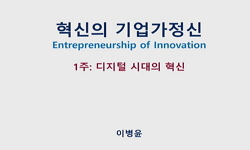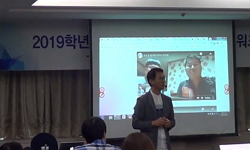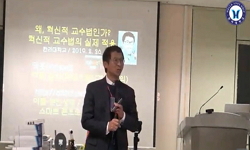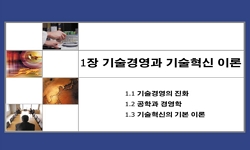실무에서 많은 기업들은 경쟁우위의 원천인 조직역량(조직학습?혁신)을 강화시키기 위해 막대한 비용과 예산을 투자하고, 최고경영진 리더십이 조직역량에 미치는 중요성을 인식하고 있다....
http://chineseinput.net/에서 pinyin(병음)방식으로 중국어를 변환할 수 있습니다.
변환된 중국어를 복사하여 사용하시면 됩니다.
- 中文 을 입력하시려면 zhongwen을 입력하시고 space를누르시면됩니다.
- 北京 을 입력하시려면 beijing을 입력하시고 space를 누르시면 됩니다.
https://www.riss.kr/link?id=A99678492
- 저자
- 발행기관
- 학술지명
- 권호사항
-
발행연도
2013
-
작성언어
Korean
-
주제어
최고경영진 ; 리더십 스타일 ; 성과측정시스템 이용 ; 조직학습 ; 혁신 ; Leadership style ; Use of the PMS ; Organizational learning ; Innovation
-
KDC
325
-
등재정보
KCI등재
-
자료형태
학술저널
- 발행기관 URL
-
수록면
103-136(34쪽)
-
KCI 피인용횟수
20
- 제공처
-
0
상세조회 -
0
다운로드
부가정보
국문 초록 (Abstract)
실무에서 많은 기업들은 경쟁우위의 원천인 조직역량(조직학습?혁신)을 강화시키기 위해 막대한 비용과 예산을 투자하고, 최고경영진 리더십이 조직역량에 미치는 중요성을 인식하고 있다. 이는 조직역량 강화가 우연한 기회에 발생한 것이 아니라 최고경영진이 의도적으로 조직역량 강화에 적합한 환경과 조건을 형성하려고 노력하기 때문이다(Senge, 1990). 관리회계 문헌에서 최고경영진의 성과측정시스템(performance measurement systems) 이용과 조직역량간의 선행연구를 살펴보면, 최고경영진의 성과측정시스템 이용(진단적?상호작용적 이용)은 조직역량 강화에 영향을 미치는 것으로 나타났다(Henri, 2006). 성과측정시스템은 의사결정, 계획수립, 그리고 성과평가 등에 유용한 정보를 제공한다(Merchant와 Otley, 2006). 그러나 관리회계분야에서 최고경영진 리더십이 조직역량에 미치는 영향에 관한 실증연구는 부족한 실정이다(Vera와 Crossan, 2004). 따라서 본 연구에서는 최고경영진의 리더십 스타일과 조직 역량간의 관계에서 성과측정시스템 이용의 매개효과를 분석하고자 한다. 이를 위해 국내 제조업 외감기업의 최고경영진(CEO, CFO, 임원)를 대상으로 설문조사를 통해 자료를 수집하고 분석하였다.
본 연구 결과를 요약하면, 리더십 스타일(구조주도형 리더십?배려형 리더십)과 조직역량 간에 성과측정시스템의 상호작용적 이용의 매개효과를 발견하였다. 그러나 성과측정시스템의 진단적 이용의 매개효과는 발견하지 못하였다. 특히, 구조주도형 리더십은 직접적으로 조직역량 강화에 유의적인 영향을 미치지 않는 것으로 나타났지만, 구조주도형 리더가 성과측정시스템의 상호작용적 이용을 증가시킬 때, 상호작용적 이용의 매개효과로 인해 조직역량이 강화되는 것으로 나타났다. 이러한 연구결과는 성과측정시스템의 상호작용적 이용을 강조하는 기존의 선행연구(Bisbe와 Otley, 2004; Henri, 2006)와 일치한다. 이는 실무에서 조직역량을 강화시키기 위해서는 최고경영진의 성과측정시스템 이용방식이 중요하다는 것을 시사하고 있다. 본 연구는 국내의 관리회계분야에서 최고경영진을 대상으로 리더십 스타일, 성과측정시스템 이용, 그리고 조직역량간의 관계를 분석한 최초의 연구라는데 의의를 찾아볼 수 있겠다. 또한, 실증연구가 부족한 최고경영진 리더십이 성과측정시스템 이용에 미치는 영향에 관한 연구를 확대하는데 기여할 수 있을 것으로 기대한다.
다국어 초록 (Multilingual Abstract)
In practice, many businesses invest enormous amount of money in order to reinforce the organization capabilities(such as organizational learning and innovation), the source of competitiveness, and are aware of the significance of the top management te...
In practice, many businesses invest enormous amount of money in order to reinforce the organization capabilities(such as organizational learning and innovation), the source of competitiveness, and are aware of the significance of the top management team(hereinafter, the “TMT”) on the organization capabilities. This is because the reinforcement of organization capabilities is not created by accident, but only by intentional endeavor to form the environment and conditions to reinforce the organization capabilities(Senge, 1990). In examining the previous research on the use of performance measurement systems(hereinafter, the “PMS”) of the TMT and the organization capabilities in the literature on managerial accounting, the use of PMS of the TMT affects the reinforcement of organization capabilities(Henri, 2006). The PMS provides useful information for decision-making, planning and performance evaluation(Merchant and Otley, 2006). However, there is a lack of practical research on the influence of the TMT on managerial accounting(Vera and Crossan, 2004). Therefore, this research aims to analyze the mediating effects of the PMS in the relationship between the leadership style of the TMT and the organization capabilities. For such purposes, the TMTs(CEOs, CFOs, Executives) of domestic manufacturing companies required to be audited by external auditors have been surveyed, and the data based on the surveys have been collected and analyzed.
In summarizing the conclusion of the current research, I have found the mediating effects of the interactive use of the PMS in the leadership style (initiating structure, consideration style) and the organization capabilities. However, the mediating effects of the diagnostic use of the PMS have not been found. In particular, initiating structure leadership has not been found to have a significant effect on the reinforcement of organization capabilities, but when a initiating structure leader uses interactive use of the PMS, the organization capabilities have been found to be reinforced due to the mediating effects of such interactive use. This conclusion is in line with the previous studies emphasizing the interactive use of the PMS(Bisbe and Otley, 2004; Henri, 2006), and implies that the means of use of the PMS by the TMT is important in order to reinforce organization capabilities in practice. This research is meaningful in that it is the first research in the field of managerial accounting that analyzed the relationship between the leadership style, the use of the PMS and the organization capabilities by conducting surveys on the TMT. I anticipate that this research will contribute to the expansion of research on the effects of the leadership of the TMT to the use of the PMS, an area which currently lacks practical research.
목차 (Table of Contents)
- Ⅰ. 서론
- Ⅱ. 선행연구 및 가설 설정
- Ⅲ. 연구의 설계
- Ⅳ. 실증분석
- Ⅴ. 결론
- Ⅰ. 서론
- Ⅱ. 선행연구 및 가설 설정
- Ⅲ. 연구의 설계
- Ⅳ. 실증분석
- Ⅴ. 결론
- 참고문헌
- Abstract
참고문헌 (Reference)
1 이상완, "통제제도와 조직성과간의 관계에서 조직학습의 역할" 한국회계학회 21 (21): 209-254, 2012
2 박노윤, "최고경영자의 특성과 기술혁신의 관계에 관한 실증적 연구" 22 (22): 199-228, 1998
3 홍소식, "최고경영자의 변혁적 리더십과 조직의 혁신성향간의 관계에 대한 연구: 조직구조의 조절효과를 중심으로" 13 (13): 99-129, 2010
4 박내회, "조직행동론" 박영사 2009
5 홍순욱, "조직역량과 조직성과: 한국과 미국 제조업 R&D 조직의 비교 연구" 한국기술혁신학회 12 (12): 740-767, 2009
6 이상완, "조직문화가 경영성과에 미치는 영향: 성과측정 및 예산시스템의 매개효과" 한국관리회계학회 11 (11): 83-105, 2011
7 송민열, "인적자원개발 담당 조직에서 CLO 리더십과 조직학습이 구성원의 직무만족에 미치는 영향" 한국인력개발학회 11 (11): 53-75, 2009
8 송현경, "의료조직의 관리통제시스템 영향요인에 관한 연구" 한국관리회계학회 11 (11): 29-54, 2011
9 임태종, "성과측정시스템의 이용방식이 혁신유형과 조직성과에 미치는 영향" 한국회계학회 21 (21): 59-94, 2012
10 이상완, "성과측정시스템의 이용과 조직성과간의 관계에서 성과측정지표의 다양성과 조직학습의 역할" 한국관리회계학회 11 (11): 37-66, 2011
1 이상완, "통제제도와 조직성과간의 관계에서 조직학습의 역할" 한국회계학회 21 (21): 209-254, 2012
2 박노윤, "최고경영자의 특성과 기술혁신의 관계에 관한 실증적 연구" 22 (22): 199-228, 1998
3 홍소식, "최고경영자의 변혁적 리더십과 조직의 혁신성향간의 관계에 대한 연구: 조직구조의 조절효과를 중심으로" 13 (13): 99-129, 2010
4 박내회, "조직행동론" 박영사 2009
5 홍순욱, "조직역량과 조직성과: 한국과 미국 제조업 R&D 조직의 비교 연구" 한국기술혁신학회 12 (12): 740-767, 2009
6 이상완, "조직문화가 경영성과에 미치는 영향: 성과측정 및 예산시스템의 매개효과" 한국관리회계학회 11 (11): 83-105, 2011
7 송민열, "인적자원개발 담당 조직에서 CLO 리더십과 조직학습이 구성원의 직무만족에 미치는 영향" 한국인력개발학회 11 (11): 53-75, 2009
8 송현경, "의료조직의 관리통제시스템 영향요인에 관한 연구" 한국관리회계학회 11 (11): 29-54, 2011
9 임태종, "성과측정시스템의 이용방식이 혁신유형과 조직성과에 미치는 영향" 한국회계학회 21 (21): 59-94, 2012
10 이상완, "성과측정시스템의 이용과 조직성과간의 관계에서 성과측정지표의 다양성과 조직학습의 역할" 한국관리회계학회 11 (11): 37-66, 2011
11 최동규, "성과관리시스템 도입효과의 영향요인에 관한 연구" 한국관리회계학회 10 (10): 151-182, 2010
12 윤대혁, "변혁적 리더십이 조직시민행동과 조직구성원의 혁신적 행동에 미치는 영향에 관한 연구" 한국인적자원관리학회 13 (13): 139-170, 2006
13 김현철, "리더십과 조직문화가 조직효과성에 미치는 영향에 관한 연구 : 육군 보병대대를 중심으로" 건국대학교 대학원 2008
14 나병선, "대기업집단의 학습조직과 조직문화, 조직학습, 조직유효성의 관계분석" 고려대학교 2002
15 이창기, "균형성과표의 도입이 기업성과에 미치는 효과 - 중소규모 제조 기업을 중심으로 -" 한국관리회계학회 10 (10): 63-88, 2010
16 김달곤, "경영전략과 통제시스템간의 조직학습효과가 성과에 미치는 영향" 대한회계학회 12 (12): 143-163, 2007
17 김달곤, "경영전략과 성과측정시스템 이용, 조직학습간의 관계" 대한경영학회 22 (22): 2545-2563, 2009
18 Burke, W. W., "ulture instrument" Columbia University 1989
19 Wetzels, M., "Using PLS path modeling for assessing hierarchical construct models: Guidelines and empirical illustration" 33 (33): 177-195, 2009
20 Hulland, J., "Use of partial least squares (PLS) in strategic management research: A review of four recent studies" 20 (20): 195-204, 1999
21 Bass, B. M., "Transformational leadership: A response to critiques, In Leadership Theory and Research: Perspectives and Directions" Academic Press 49-88, 1993
22 Keller, R. T., "Transformational leadership and the performance of research and development project groups" 18 (18): 489-501, 1992
23 Abernethy, M. A.., "The role of budgets in organizations facing strategic change: An exploratory study" 24 (24): 189-204, 1999
24 Church, A. H., "The relationship between individual orientation and executive leadership behaviors" 71 (71): 99-125, 1998
25 Chin, W. W., "The partial least squares approach to structural equation modeling, In Modern Methods for Business Research" Lawrence Erlbaum Associates 295-336, 1998
26 Waldman, D. A., "The nature of effective leadership and championing processes at different level in an R&D hierarchy" 5 (5): 233-245, 1994
27 Abernethy, M. A., "The impact of manufacturing flexibility on management control system design" 20 (20): 241-258, 1995
28 Judge, T. A., "The forgotten ones? The validity of consideration and initiating structure in leadership research" 89 (89): 36-51, 2004
29 Bisbe, J., "The effects of the interactive use of management control systems on product innovation" 29 (29): 709-737, 2004
30 Jansen, E., "The effect of leadership style on the information receiver's reaction to management change" 22 (22): 105-124, 2011
31 Shea, C. M., "The effect of leadership style on performance improvement on a manufacturing task" 72 (72): 407-422, 1999
32 Hall, M., "The effect of comprehensive performance measurement systems on role clarity, psychological empowerment and managerial performance" 33 (33): 141-163, 2008
33 Otley, D. T, "The control problem in public accounting firms: An empirical study of the impact of leadership style" 20 (20): 405-420, 1995
34 Katz, D., "The Social Psychology of Organizations" Willey 1978
35 Roberts, J., "The Modern Firm: Organizational Design for Performance and Growth" Oxford University Press 2004
36 Senge, P., "The Fifth Discipline, the Art and Practice of the Learning Organization" Random House 1990
37 Vera, D., "Strategic leadership and organizational learning" 29 (29): 222-240, 2004
38 Elenkov, D. S., "Strategic leadership and executive innovation influence: And international multi-cluster comparative study" 26 (26): 665-682, 2005
39 Cohen, J, "Statistical Power Analysis for the Behavioral Science" Lawrence Erlbaum Associate 1998
40 Tenenhaus, M., "PLS path modeling" 18 (18): 159-205, 2005
41 Silins, H. C., "Organizational learning and school change" 38 (38): 613-642, 2002
42 Yoo, Y. J., "Media and group cohesion: Relative influences on social presence, task participation and group consensus" 25 (25): 371-390, 2001
43 Bertrand, M., "Managing with style: The effect of managers of firm policies" 118 (118): 1169-1208, 2003
44 Tidd, J., "Managing Innovation: Integration Technology, Market and Organizational Change" John Wiley and Sons 2001
45 Henri, J. F., "Management control systems and strategy: A resource-based perspective. Accounting" 31 (31): 529-558, 2006
46 Simons, R., "Levers of Control: How Managers Use Innovative Control Systems to Drive Strategic Renewal" Harvard Business School Press 1995
47 Larson, J. R, "Leadership style and the discussion of shared and unshared information in decision making groups" 24 (24): 482-495, 1998
48 Yukl, G. A., "Leadership in Organizations" Pearson Prentice Hall 2005
49 Hopwood, A., "Leadership climate and the use of accounting data in performance evaluation" 49 (49): 485-495, 1974
50 Abernethy, M. A., "Leadership and control system design" 21 (21): 2-16, 2010
51 DeChurch, A. Leslie, "Leadership across levels: Levels of leaders and their levels of impact" 21 (21): 1069-1085, 2010
52 Stodgill, R. M, "Leader Behavior: Its Description and Measurement, Columbus Bureau of Business Research" Ohio State University 1957
53 Chenhall, R. H., "Integrative strategic performance measurement systems, strategic alignment of manufacturing, learning and strategic outcomes: An exploratory study. Accounting" 30 (30): 395-422, 2005
54 Hurley, R. F., "Innovation, market orientation, and organizational learning : An integration and empirical examination" 62 (62): 42-54, 1998
55 Stodgill, R. M, "Handbook of Leadership: A Survey Research" Free Press 1974
56 Teece, D.J., "Firm capabilities, resources and the concept of strategy" 18 (18): 509-533, 1997
57 Fornell, C. R., "Evaluating structural equation models with unobservable variables and measurement error" 18 (18): 39-50, 1981
58 Mulford, W., "Education Leadership for Organizational Learning and Improved Student Outcomes" Kluwer Academic Publishers 2004
59 Waldman, D. A, "Does leadership matter? CEO leadership attributes and profitability under conditions of perceived environmental uncertainty" 44 (44): 134-143, 2001
60 Bass, B. M., "Contingent aspects of effective management styles, In Contingency Approaches to Leadership" South Illinois University Press 1974
61 Leithwood, K., "Conditions fostering organizational learning in schools" 34 (34): 243-276, 1998
62 Howell, J. M., "Champions of technological innovation" 35 (35): 317-341, 1990
63 Malmendier, U, "CEO over confidence and corporate investment" 2002
64 Govindarajan, V., "Appropriateness of accounting data in performance evaluation: An empirical examination of environmental uncertainty as an intervening variable" 9 (9): 125-135, 1984
65 Hopwood, A., "An empirical study of the role of accounting data in performance evaluation" 10 (10): 156-182, 1972
66 Widener, S. K., "An empirical analysis of the levers of control framework. Accounting" 32 (32): 757-788, 2007
67 Merchant, K. A., "A review of the literature on control and accountability" The HandBook of Management Accounting Research 785-802, 2006
68 Gefen, D., "A practical guide to factorial validity using PLSGRAPH: Tutorial and annotated example" 16 (16): 91-109, 2005
69 Scherr, A., "A new model of leadership" Harvard NOM Research 2006
동일학술지(권/호) 다른 논문
-
DEA를 이용한 경영자 능력이 기업성과에 미치는 영향에 관한 연구
- 한국관리회계학회
- 고창열(Chang Youl Ko)
- 2013
- KCI등재
-
- 한국관리회계학회
- 정주희(Joo Hee Chung)
- 2013
- KCI등재
-
- 한국관리회계학회
- 강호영(Ho Young Kang)
- 2013
- KCI등재
-
- 한국관리회계학회
- 최웅용(Ung-Yong Choi)
- 2013
- KCI등재
분석정보
인용정보 인용지수 설명보기
학술지 이력
| 연월일 | 이력구분 | 이력상세 | 등재구분 |
|---|---|---|---|
| 2027 | 평가예정 | 재인증평가 신청대상 (재인증) | |
| 2021-01-01 | 평가 | 등재학술지 유지 (재인증) |  |
| 2018-01-01 | 평가 | 등재학술지 유지 (등재유지) |  |
| 2015-01-01 | 평가 | 등재학술지 유지 (등재유지) |  |
| 2011-01-01 | 평가 | 등재학술지 유지 (등재유지) |  |
| 2008-01-01 | 평가 | 등재학술지 선정 (등재후보2차) |  |
| 2007-01-01 | 평가 | 등재후보 1차 PASS (등재후보1차) |  |
| 2005-01-01 | 평가 | 등재후보학술지 선정 (신규평가) |  |
학술지 인용정보
| 기준연도 | WOS-KCI 통합IF(2년) | KCIF(2년) | KCIF(3년) |
|---|---|---|---|
| 2016 | 2.45 | 2.45 | 2.5 |
| KCIF(4년) | KCIF(5년) | 중심성지수(3년) | 즉시성지수 |
| 2.42 | 2.28 | 3.539 | 0.36 |





 DBpia
DBpia






